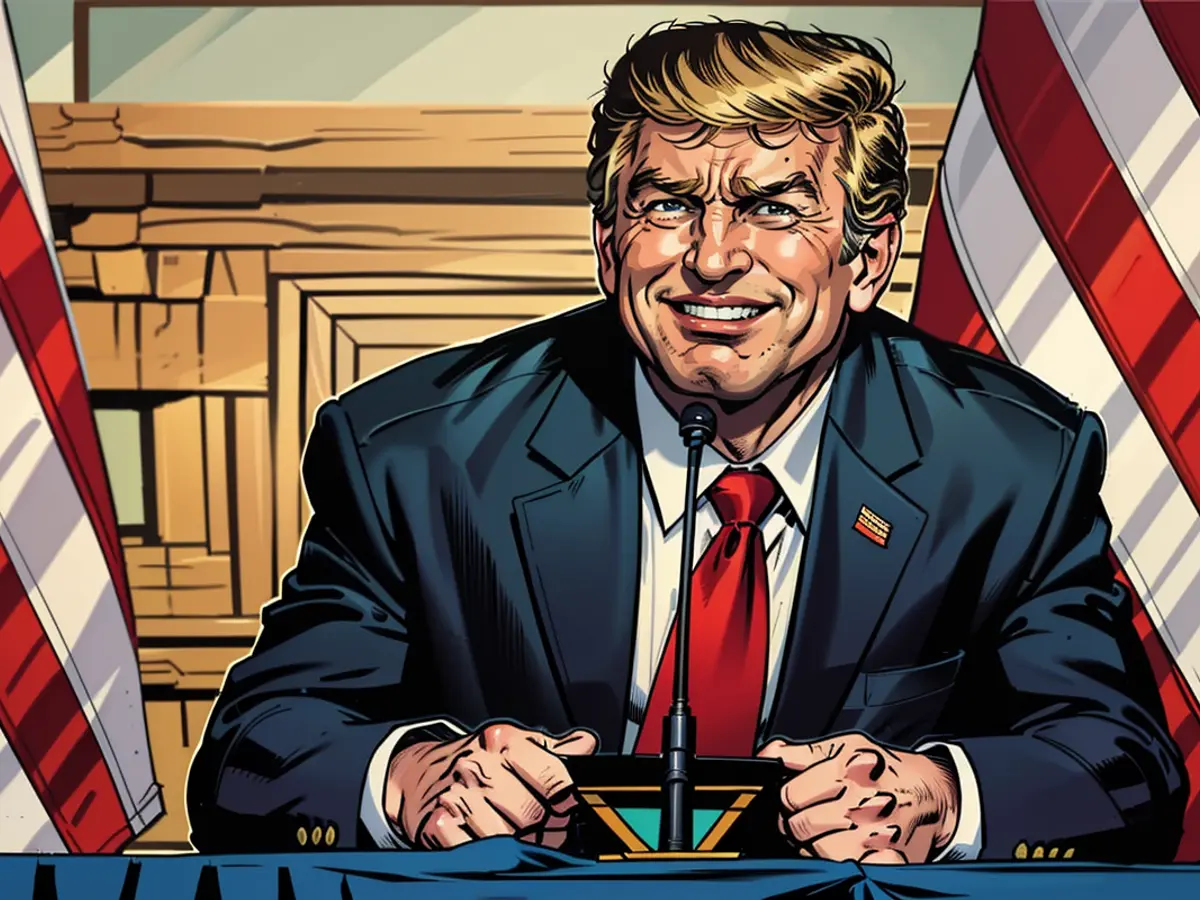Criminal proceedings against Trump could vanish into thin air
What does the ruling mean? For some actions taken by former President Trump, he can be charged. But not for everything. The details are unclear, the legal saga continues. Much depends on whether Trump wins the presidency in November.
One thing we must allow the Justices of the Supreme Court to do: they know how to build tension. The most important ruling they have withheld until the last minute is this. Trump, along with others, and future ex-presidents are not completely immune - but.
The Justices distinguish in their ruling between official actions in the sense of a president's duties and those outside of that, such as things Trump did as a candidate. What of what Trump did during his presidency was an official act or not, the majority of the justices did not want to decide. This question they referred back to the District Court in Washington D.C.
Three ongoing court cases against Trump are directly dependent on this ruling. What happens next?
The three cases are:
- the indictment of the prosecutor in the Justice Department for attempted manipulation of the 2020 election results to turn his loss against Joe Biden into a win.
- another indictment by investigators for the storage of classified documents that Trump kept in his private residence at Mar-a-Lago and refused to hand over until the FBI raided.
- a case in the state of Georgia, where Trump is also charged with attempted electoral fraud. He had telephonically pressured the responsible election officials there to "find" votes.
If Trump wins the presidency in the coming November, he can dismiss the special prosecutor of the Justice Department, Jack Smith, and file the two cases of the Justice Department in the archives. He has no decision-making power over the case in Georgia, but firstly, it could be put on ice, and secondly, Trump could try to declare any evidence presented in the indictment as official business.
Thicker Fog and Interpretation Matter
If Trump loses the presidency in the coming year, he could stand trial in all three cases. But even there, the question will be which of his actions he carried out as an officeholder and which not. All of this could take a long time. The investigators are now pondering how they can make their evidence for the charges against Trump watertight in the sense of the Supreme Court ruling.
For example, Trump put permanent pressure on the Justice Department after his election loss in 2020 to investigate his fabricated fraud allegations and declare the election "corrupt." Is this an official act because he gave instructions to his own ministry? Or should the courts consider his intent? The jurists are once again wading into the constitutional fog. It says there that the president must ensure that "laws are faithfully executed." In other words, an interpretive matter.
The three contradictory judges consider the verdict dangerous. It ends the principle that no one is above the law. "Let the law break him, let him use his office for personal gain, set his power for evil purposes." From straw man murder orders against political opponents to a military coup in their own country, they consider all of this possible. This sounds extreme, but one thing is certain: In the future, it will be much more difficult to legally charge an ex-president.
Time's Up
Trump had demanded that a president, and therefore himself, must be completely immune to any criminal prosecution after leaving office. If the judges had fulfilled this maximalist demand, US presidents would have transformed into untouchable kings for life with their swearing-in. Trump celebrated the judgment on his social network Truth Social as a "GREAT VICTORY." This may also be due to the fact that every delay plays into his hands.
Critical jurists say that the Supreme Court could have decided much earlier, perhaps even had to. After all, Jack Smith had asked the court about it in December. However, the announcement was delayed until the last moment. A trial before the election is now highly unlikely. During the hearing in April, Judge Neil Gorsuch, a moderate conservative, hinted that the Supreme Court would allow time. "We are writing a rule for eternity," he said. "I am not concerned about the current case, but about the future use of the law to target political opponents based on suspected motives."
Such a situation has never existed before - a clearly conservative judicial majority, of which three owe their seats to Trump: Neil Gorsuch, Brett Kavanaugh, and Amy Coney Barrett. Two others are accused of mixing their private lives with their professional duties: Samuel Alito and Clarence Thomas. Since the Supreme Court has taken this ideological stance, trust in the US among Americans is at a historical low. Approval for its work hovers around 40%. The latest judgment could further lower this value. After all, 74% of Americans previously believed that former presidents should not be immune to criminal prosecution.
The ruling by the Supreme Court has implications for the US presidential election in 2024, as it establishes that former presidents like Donald Trump are not completely immune to legal proceedings. However, the line between official and non-official actions remains unclear, leaving questions about Trump's indictments in the Justice Department and Georgia for resolution.
The indictment against Trump for attempting to manipulate the 2020 election results, the storage of classified documents, and the electoral fraud charges in Georgia are all significant cases that hinge on this Supreme Court ruling. The outcome of these cases could potentially shape the political landscape, depending on whether Trump wins the presidency again.
The jurists are challenged with interpreting whether Trump's actions, such as pressuring the Justice Department to investigate election fraud allegations, fall under the category of official duties or personal intent. This fine line in the Supreme Court's ruling may allow for a more complex interpretation of a president's immunity post-office.








